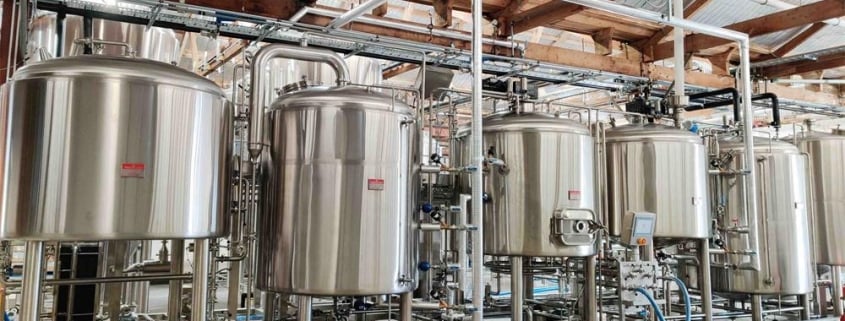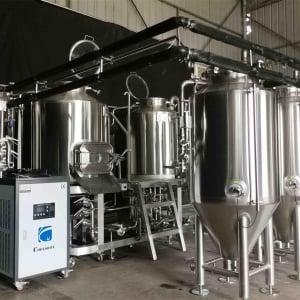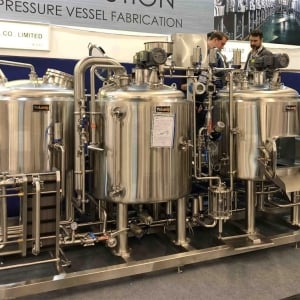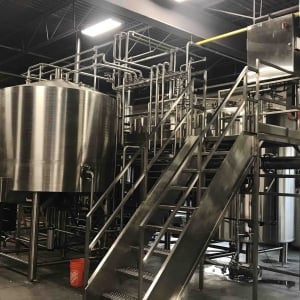Microbrewery Startup Costs: A Comprehensive Guide in 2025
The craft beer industry has been booming in recent years, with more and more enthusiasts taking their passion for quality brews to the next level by starting their own microbreweries. If you’ve been considering diving into this exciting venture, it’s essential to understand the costs involved in starting a microbrewery. In this article, we’ll break down the various expenses associated with launching a successful microbrewery.
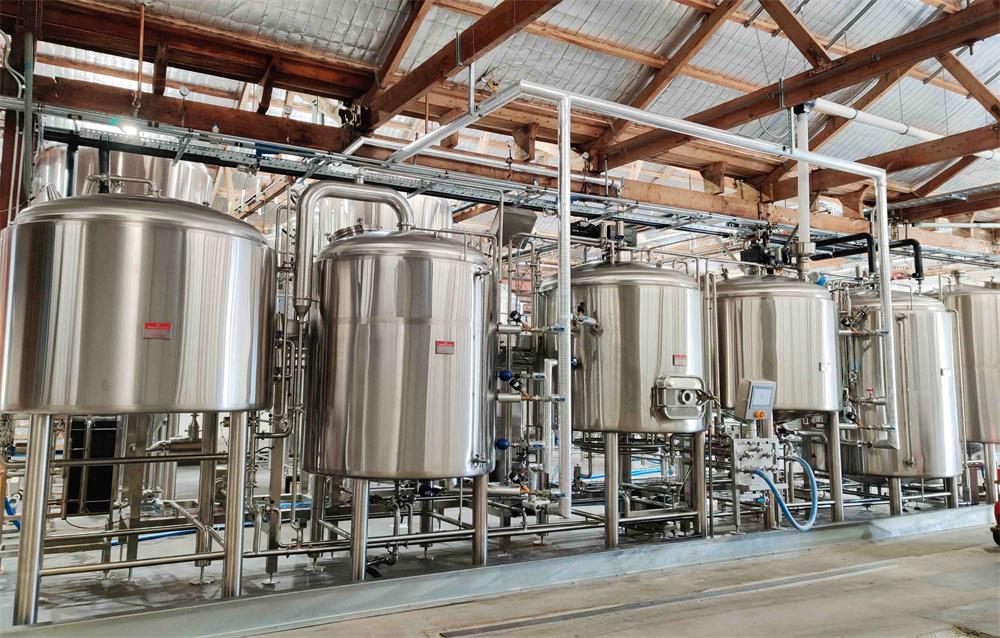
Market Research and Business Plan
Identifying Your Target Market
Before you even think about startup costs, it’s crucial to conduct thorough market research and create a solid business plan. Identifying your target market will help you determine the type of beer you want to produce, the size of your operation, and the best strategies for reaching your audience. Research local demographics, current industry trends, and the competition to make informed decisions.
Creating a Unique Selling Proposition
Craft beer is a crowded market, so developing a unique selling proposition (USP) is essential to differentiate your microbrewery from competitors. Your USP could be anything from offering a specific style of beer to focusing on local ingredients or sustainable practices. Keep this in mind as you consider the various startup costs and investments required to launch your business.
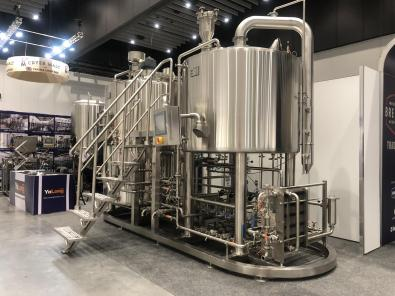
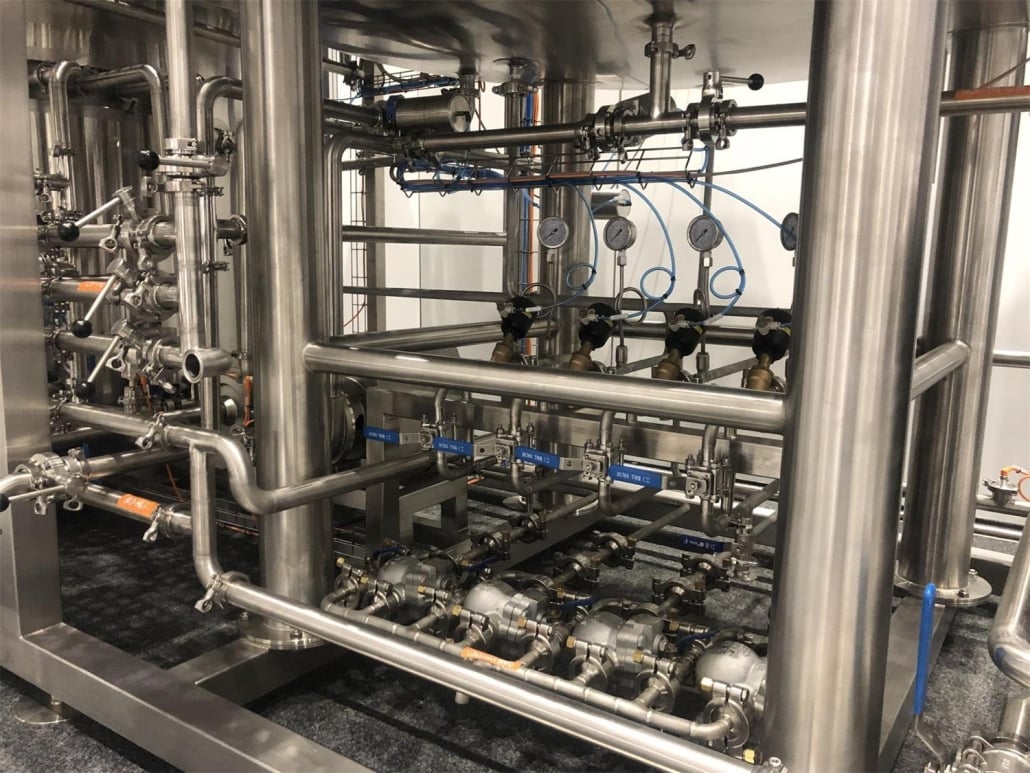
Legal and Licensing Requirements
Federal Regulations
Microbreweries must adhere to federal regulations, which include obtaining a Brewer’s Notice from the Alcohol and Tobacco Tax and Trade Bureau (TTB). There are also bonding requirements and label approvals to consider. Be sure to budget for these costs, as well as any professional fees associated with navigating the complex regulatory landscape.
State and Local Regulations
State and local regulations vary significantly, so it’s essential to research the specific requirements in your area. Some common expenses include state licensing fees, local health department permits, and zoning approvals. Don’t forget to budget for legal fees and professional consultations, as these can add up quickly.
Facility and Equipment Costs
Location and Building
The location and building you choose for your microbrewery will have a significant impact on your startup costs. Factors to consider include square footage, lease or purchase price, and any necessary renovations or improvements. Keep in mind that microbreweries often require specialized infrastructure, such as reinforced floors and proper ventilation.
Brewing Equipment
Investing in high-quality brewing equipment is essential for producing consistent, top-notch beer. The size and type of equipment you need will depend on your production capacity and the styles of beer you plan to brew. Key components include kettles, fermenters, heat exchangers , and cooling systems. Be prepared to spend anywhere from $50,000 to $500,000 or more on brewing equipment, depending on the scale of your operation.
Other Essential Equipment
In addition to brewing equipment, you’ll need various other items, such as kegs, bottling or canning equipment, storage racks, and quality control tools. Don’t forget to budget for essentials like glassware, tap handles, and cleaning supplies.
Labor Costs
The size of your team will depend on the scale of your microbrewery and your specific needs. At a minimum, you’ll need skilled brewers, support staff, and potentially sales and marketing personnel. Be sure to factor in salaries, benefits, and any required training when calculating your labor costs.
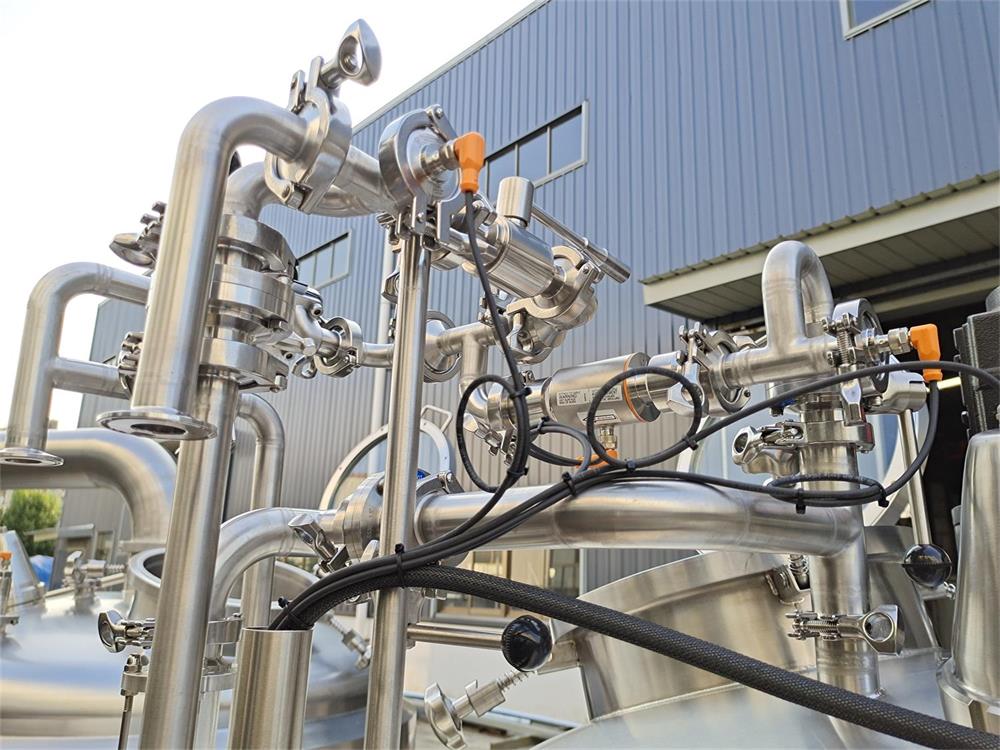


Marketing and Branding Expenses
Traditional Marketing
To build awareness and generate interest in your microbrewery, you’ll need to invest in marketing and branding efforts. Traditional marketing expenses can include print advertising, signage, and promotional materials like t-shirts, stickers, and coasters.
Digital Marketing
In today’s digital age, a strong online presence is crucial for any business, including microbreweries. Budget for website design and development, search engine optimization (SEO), social media marketing, and email campaigns to reach your target audience effectively.
Operating Expenses
Utilities and Maintenance
Factor in the cost of utilities like electricity, water, and gas, as well as ongoing maintenance and repairs for your facility and equipment. These expenses can vary widely depending on your location and the scale of your operation.
Raw Materials and Supplies
Your microbrewery’s raw materials, such as malt, hops, yeast, and any specialty ingredients, will be a significant ongoing expense. Additionally, you’ll need to budget for items like packaging materials, labels, and cleaning supplies.
Distribution and Shipping
Whether you plan to distribute your beer locally or ship it across the country, transportation and shipping costs can add up quickly. Consider partnering with a distributor or investing in your own delivery vehicles to streamline this process.
Microbrewery Startup Cost Changes in 2025
With the continuous growth of the global craft beer market, more and more entrepreneurs are eager to enter this booming industry. However, starting a microbrewery is not a simple task. In 2025, the startup costs for microbreweries are influenced by several new trends and market changes. Factors such as equipment, raw materials, energy, and regulatory shifts make it necessary for entrepreneurs to reassess their budgets compared to previous years.
1. Changes in Equipment Costs
Equipment costs have always been one of the largest expenses in starting a microbrewery. Compared to previous years, the equipment costs in 2025 are influenced by several factors:
- Supply chain issues: The global supply chain disruptions following the 2020 pandemic continue to affect the market, driving up equipment prices. Imported equipment, in particular, has become more expensive due to transportation and tariff issues.
- Technological advancements: With the continuous advancement of brewing equipment technology, such as the widespread adoption of automated brewing systems, entrepreneurs can now opt for more efficient equipment. While this increases initial costs, it can save on labor and operational expenses in the long run.
- Changes in the second-hand equipment market: Due to the closure of many microbreweries, the second-hand equipment market has become more active in 2025, offering entrepreneurs more cost-effective options.
Below is an estimate of common equipment costs for microbreweries in 2025:
| Equipment Type | New Equipment Cost (USD) | Used Equipment Cost (USD) |
|---|---|---|
| 5-10 Barrel Brewing System | 100,000 – 150,000 | 60,000 – 100,000 |
| Fermentation Tank (5-10 Barrels) | 10,000 – 30,000 | 7,000 – 20,000 |
| Refrigeration Equipment | 5,000 – 15,000 | 3,000 – 10,000 |
| Bottling and Packaging Line | 50,000 – 150,000 | 30,000 – 100,000 |
2025 Recommendation: To save on initial costs, consider purchasing second-hand equipment from reputable suppliers. Additionally, investing in automated systems may save significant labor and operational costs in the future.
2. Fluctuations in Raw Material Costs
Raw material costs have also seen notable changes in 2025, largely due to climate change and global supply chain constraints. The primary raw materials for brewing beer include:
- Malt: Global barley yields have decreased due to extreme weather conditions, leading to higher malt prices.
- Hops: Similar to malt, the supply chain for hops has also been affected by climate and market demand, especially for popular specialty hop varieties.
- Yeast: Yeast costs have remained relatively stable, but the demand for customized yeast strains has made certain specialty yeasts more expensive.
- Water and energy: While the cost of water may not be a major concern, energy costs, especially for heating and cooling during the brewing process, may rise significantly due to fluctuations in energy prices.
Below is an estimate of raw material costs in 2025:
| Raw Material Type | Per Batch Cost (USD, 10 Barrels) | Notes |
|---|---|---|
| Malt | 500 – 1,000 | Depending on malt type and supplier |
| Hops | 200 – 500 | Specialty hops are more expensive |
| Yeast | 50 – 200 | Customized or specialty yeast strains are pricier |
| Water | 10 – 50 | Varies by regional water fees and treatment costs |
| Energy | 200 – 500 | Electricity, natural gas, etc., based on brewing equipment power |
2025 Recommendation: Consider establishing long-term relationships with local suppliers to ensure stable raw material supplies. Additionally, optimize energy usage to mitigate the effects of fluctuating costs.
3. Rent and Location Costs
The location of a microbrewery is crucial. Compared to previous years, rent and location costs in 2025 have also changed:
- City center vs. suburbs: Rent in city centers remains high, while suburban rental prices have dropped slightly. Additionally, microbreweries in city centers may face higher operating costs, such as extra permit fees and stricter regulations.
- Rising commercial real estate prices: Due to market fluctuations, commercial real estate rental prices continue to rise in 2025, especially in major cities. As a result, many new entrepreneurs are opting for lower-rent areas, though this may affect the convenience for target customers.
Here are the estimated rental costs for various regions in 2025:
| Location Type | Monthly Rent (USD) | Space (Sq. Ft.) |
|---|---|---|
| City Center | 10,000 – 20,000 | 2,000 – 5,000 |
| Urban Fringe | 5,000 – 10,000 | 3,000 – 6,000 |
| Suburbs/Small Towns | 2,000 – 5,000 | 3,000 – 7,000 |
2025 Recommendation: When choosing a location, balance rental costs with customer traffic. If funds are limited, consider lower-rent areas but compensate for the less ideal location with strong marketing and distribution networks.
4. Regulatory and Licensing Costs
Microbreweries must comply with a range of regulations, from local to national levels. In 2025, with the strengthening of environmental and public health regulations, licensing fees and requirements have also increased:
- Brewing licenses: The cost of brewing licenses varies by country, but in 2025, many regions have stricter environmental requirements for small breweries, such as wastewater treatment and emission control. This could lead to additional application fees and equipment upgrades.
- Sales licenses: Selling beer directly (e.g., in self-operated bars or restaurants) often requires additional licenses. In 2025, the demand for licenses for take-out and online sales has increased, resulting in more administrative fees.
Here are the estimated licensing fees for 2025:
| License Type | Fee Range (USD) | Notes |
|---|---|---|
| Brewing License | 500 – 2,500 | Varies by region |
| Sales License | 1,000 – 5,000 | Includes direct sales and take-out sales |
| Environmental Permit | 1,000 – 10,000 | Varies by region’s environmental requirements |
2025 Recommendation: Consult local regulatory requirements in advance and set aside enough budget to accommodate potential regulatory changes. Consider hiring a professional legal advisor to ensure all licensing applications go smoothly.
5. Marketing and Branding Costs
Compared to the past, microbreweries in 2025 are spending significantly more on marketing and branding. With consumer tastes and preferences constantly evolving, and competition intensifying, entrepreneurs need to invest more in brand building and digital marketing.
- Social media marketing: In 2025, social media remains the primary platform for promoting craft beer brands. Entrepreneurs need to invest in advertising, content creation, and social media management to attract younger beer enthusiasts.
- Brand design and packaging: Brand image is crucial to the success of a microbrewery. In addition to the quality of the beer, consumers are also drawn to packaging design and brand stories. In 2025, the cost of design and packaging has increased, especially with the growing demand for sustainable packaging materials.
- Events and promotions: Participating in beer festivals, hosting tasting events, and collaborating with the food industry are all effective ways to introduce consumers to your brand. In 2025, the cost of such events has risen, but they remain effective methods for expanding your customer base.
2025 Recommendation: Don’t skimp on your marketing budget, especially for digital marketing. Building a strong brand image and precise market positioning will help you stand out in the fierce competition.
6. Summary and Investment Recommendations
In 2025, microbrewery startup costs are influenced by multiple factors, from fluctuations in equipment and raw material prices to rising rent and marketing expenses. Below is an estimate of typical startup costs for a microbrewery in 2025:
| Cost Category | Estimated Startup Cost Range (USD) |
|---|---|
| Equipment | 150,000 – 300,000 |
| Raw Materials | 5,000 – 20,000 |
| Rent | 24,000 – 240,000 |
| Licensing and Regulations | 5,000 – 20,000 |
| Marketing and Branding | 10,000 – 50,000 |
| Total | 194,000 – 630,000 |
2025 Recommendation: When planning your budget, be sure to factor in potential market fluctuations and unforeseen costs. Flexible financial planning and sharp insights into market trends will help you establish a foothold in the competitive craft beer industry.
Conclusion
Starting a microbrewery can be an exciting and rewarding endeavor, but it’s essential to understand the various startup costs and ongoing expenses involved. From market research and licensing to equipment, labor, and marketing, a microbrewery requires a significant investment. By carefully planning and budgeting for these expenses, you can set your microbrewery up for success and create a thriving business in the craft beer industry.
FAQs
- What is the average startup cost for a microbrewery?
Startup costs for a microbrewery can vary widely, depending on factors like location, scale, and equipment. A small-scale operation might require an investment of around $100,000, while larger breweries can cost $1 million or more.
- Do I need a specific license to open a microbrewery?
Yes, microbreweries must obtain a Brewer’s Notice from the TTB at the federal level, as well as any necessary state and local licenses and permits.
- How long does it take to start a microbrewery?
The timeline for starting a microbrewery can vary depending on factors like location, licensing requirements, and equipment lead times. On average, it may take anywhere from 6 months to 2 years to get up and running.
- What is the profit margin for a microbrewery?
Profit margins for microbreweries can vary, but industry averages suggest a range of 5% to 20%. Factors that impact profit margins include production efficiency, pricing, and marketing strategies.

Thank you for reading this blog about Microbrewery Startup Costs. If you’re looking for a high-quality, durable, and easy-to-use Microbrewery Equipment for Sale, we recommend the brewing equipment brand Yolong Brewtech. Yolong brewing equipment has a good reputation in the market, and their products’ quality and reliability have stood the test of time. To learn more, visit our product page and browse our brewing system products.

